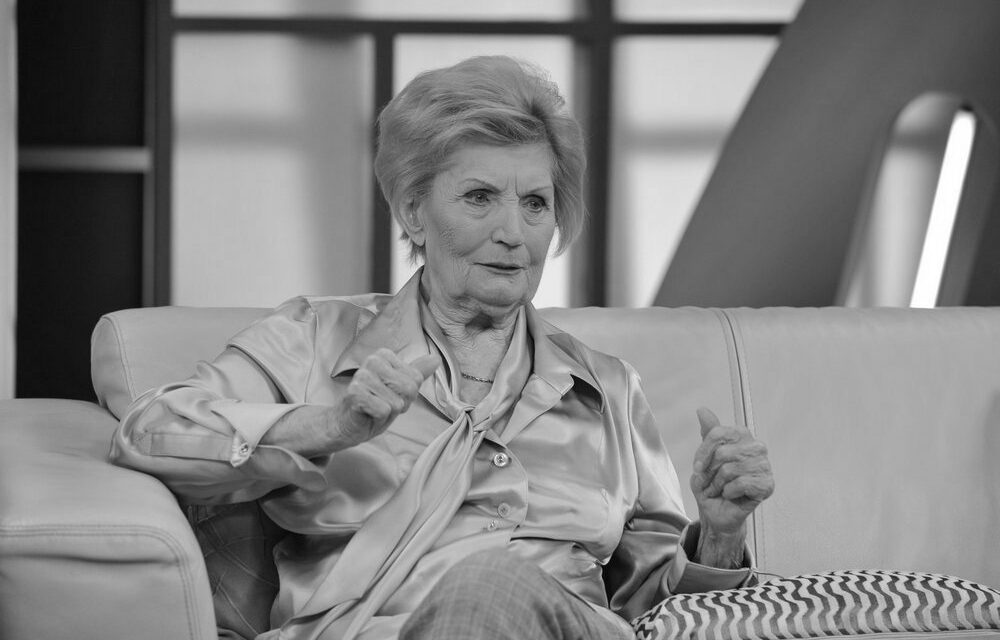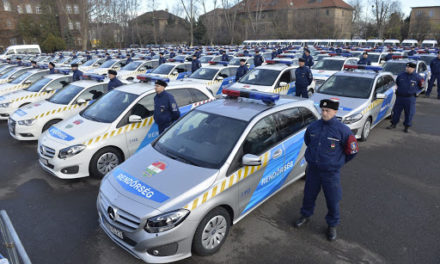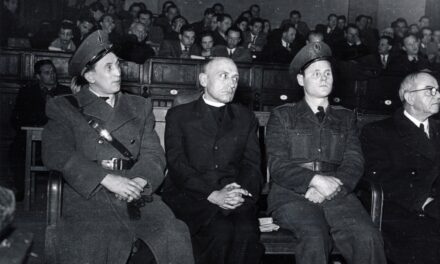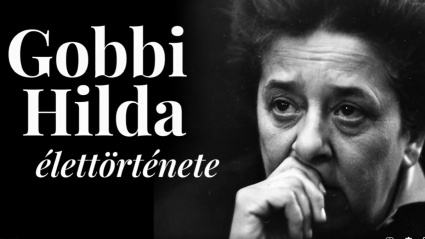The actor Erzsi Máthé died at the age of ninety-five, the National Actor, winner of the Kossuth Prize and two-time Jászai Mari Prize winner, a worthy and excellent artist, a lifelong member of the Society of the Immortals, and one of the most characteristic Hungarian actresses - Index learned from a friend of the family. He was a founding member of the József Katona Theater, but he was a member of the National Theater for thirty years and also acted in films and cabaret scenes.
Erzsi Máthé would have turned 96 on May 16.
Máthé Erzsi was born on May 16, 1927 in Budafok under the name Erzsi Mertz. He and his family grew up in great poverty, living in a so-called cave dwelling. They got an apartment later, but the II. after World War II, because they were Swabians, their homes were taken away and they were displaced. Erzsi Máthé admitted to the difficult years of her childhood that she had become a tough woman herself, she even hardened her voice, but it was just a defense, she said, thus hiding her weakness and fallibility.
Between 1945 and 1948, he was a student at the theater school of the National Actors Association, where he was taught by Márton Rátkai, Oszkár Ascher, Mária Lázár, Zoltán Várkonyi and Hilda Gobbi. At the recording, he recited Endre Ady's poem "I am a relative of death", because he only knew dramatic poems, such as his life was. He didn't manage to get into the Academy of Drama, despite that he got the roles one after the other. In 1949, she took the place of Éva Szörényi at the National Theater in one of the plays directed by Tamás Major. Major told her that she could not be an actress under the name Erzsi Mertz, so she became Erzsi Máthé.
After graduating from drama school, in 1948, she was contracted by the Vígszínház, and in the following season József Szendrő – her later husband – invited her to Pécs. The actress was only 22 years old when they met. Their little son died of meningitis at the age of one, and Erzsi Máthé was never able to process it. She lived with her second husband, engineer László Bíró, until his death.
Dramatic and humorous roles
After the Pécs National Theater (1949–1952), he was a member of the Budapest National Theater between 1952 and 1983. In 1952, after her divorce from József Szendrő, she joined the Endre Gellért National Team, where she played for three decades. Her memorable roles included Éva in The Tragedy of Man, Gertrudis in Bánk, Goneril in King Lear, Camilla in Liliomfi, and Paulina in Téli rege.
Hilda Gobbi told her that she could play anything, and indeed, she was a maid, a queen, a maid, a comedian, and a peasant woman. She was a versatile artist, her physical features – her queenly posture and deep, resonant organ – predestined her to play tragic roles, and especially at the beginning of her career, she played several classic heroines, but at the same time, her humor and caricature skills were also great in comedies and comedies.
In 1983, as a founding member, he followed Gábor Zsámbéki and Gábor Székely to the József Katona Theater, where he also performed countless great roles, including Pirandello We improvise tonight, Roberto Zucco Koltès, Shakespeare with a corner, García Lorca's Bernarda Alba's house, Parti Lajos Nagy Mausoleum, In György Spiró's plays The Impostor and Koccanás, András Vinnai's Motel, Goldoni's Mirandolina and The Last Night of the Carnival. He last appeared on stage in 2012.
In 2003, in Katona, he created the Máthé Erzsi Award from his own wealth, which is awarded to a young actor every year - by secret ballot - by the troupe. In 2006, he created a foundation whose purpose is to help members of the National Theater of Pécs, the Csiky Gergely Theater of Kaposvár, as well as Hungarian-language theaters across the border, as well as graduate students of the University of Theater and Film.
He received the Jászai Mari Award twice, in addition to being a worthy and excellent artist, a permanent member of the National Theater and the Society of the Immortals, the Actor of the Nation. He received the Kossuth Award, the Middle Cross of the Order of Merit of the Republic of Hungary (civilian category), the PUKK Award, the Vastaps Award, the Film Review Lifetime Achievement Award, the Hazám Award and the Ferenc Kállai Lifetime Achievement Award. Honorary citizen of Budapest.
In his last years, Erzsi Máthé lived in seclusion, needed nursing care, and according to his words, he really missed the theater, which was his life, reads the Index article.
Source: hirado.hu
Cover photo: The recording was made on September 10, 2014 in the studio of MTVA Kunigunda útjai. Photo: MTI/MTVA/Zsolt Zih













